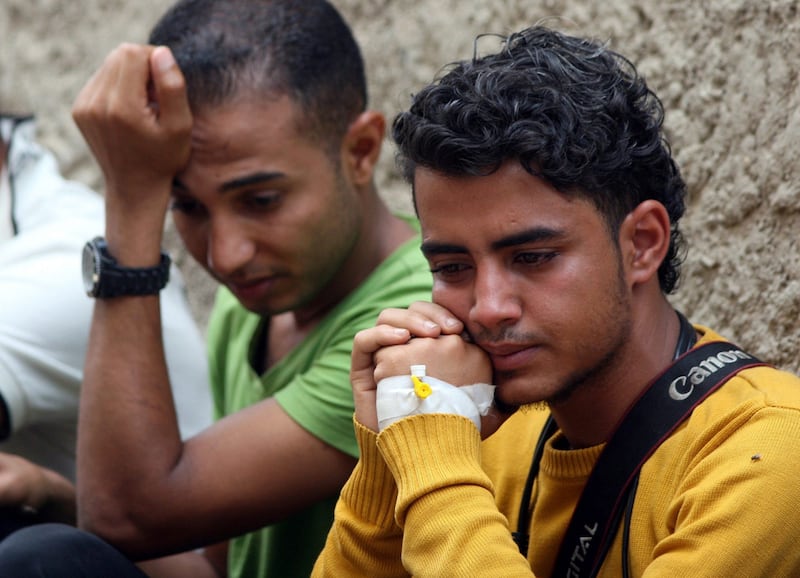ADEN // Three journalists were killed and two others wounded in Houthi shelling in eastern Taez on Friday morning, taking the toll of civilians killed in the city by Yemen’s rebels this week to 19.
The journalists were hit as they as they covered clashes between the rebels and pro-government forces near the Republican Palace, according to their fellow journalist, friend Abdul Nasser Salah
He identified the slain journalists as Anwar Al Absi, Taqi Al Deen Al Hothaifi and Sa’ad Al Nidhari, while Waleed Al Qadasi and Salah Al Deen Al Wahbai were injured. All are freelancers.
The victims had covered the advance of pro-government forces on different fronts in Taez city and usually followed them on foot, Mr Salah said.
Rebel shelling killed three journalists in Taez last year and injured several others, and Mr Salah said his friends were targeted on purpose.
“The Houthi snipers observed their movement in the area around the palace from the mountains. They target journalists deliberately to stop us saying the truth, but we will not stop. Rather, this will encourage us,” Mr Salah said.
Another 16 civilians, including children, have been killed in rebel shelling since Monday, according to the Taez health services chief.
Fighting on the eastern front of Taez resumed three days ago. Pro-government forces recaptured the central bank office and some buildings of Taez University before the clashes spread to areas around the Republican Palace.
The south-western city, the capital of Taez province, has seen some of fiercest fighting since the Houthi rebels and their allies overran Yemen’s capital, Sanaa, in September 2014 and then seized much of the rest of country.
Forces loyal to president Abdrabu Mansur Hadi, whose government is based in the southern port city of Aden, have retaken Southern Yemen with the support of a Saudi-led military coalition but most of the north and the Red Sea coast remain in rebel hands.
Several UN-backed rounds of talks have failed to end the conflict and on Thursday the UN envoy to Yemen, Ismail Ould Cheikh Ahmed, flew out of the rebel-held capital after failing to secure agreement to a ceasefire for the holy month of Ramadan.
foreign.desk@thenational.ae
* With additional reporting from Agence France-Presse





